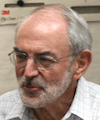
How to See ‘Unknown Knowns’
Market forecasters make two common mistakes, experts said at conferences this spring. In calculating averages of potential outcomes, they assume parallel universes. And they tend to blame “black swans” for their own blindness.


